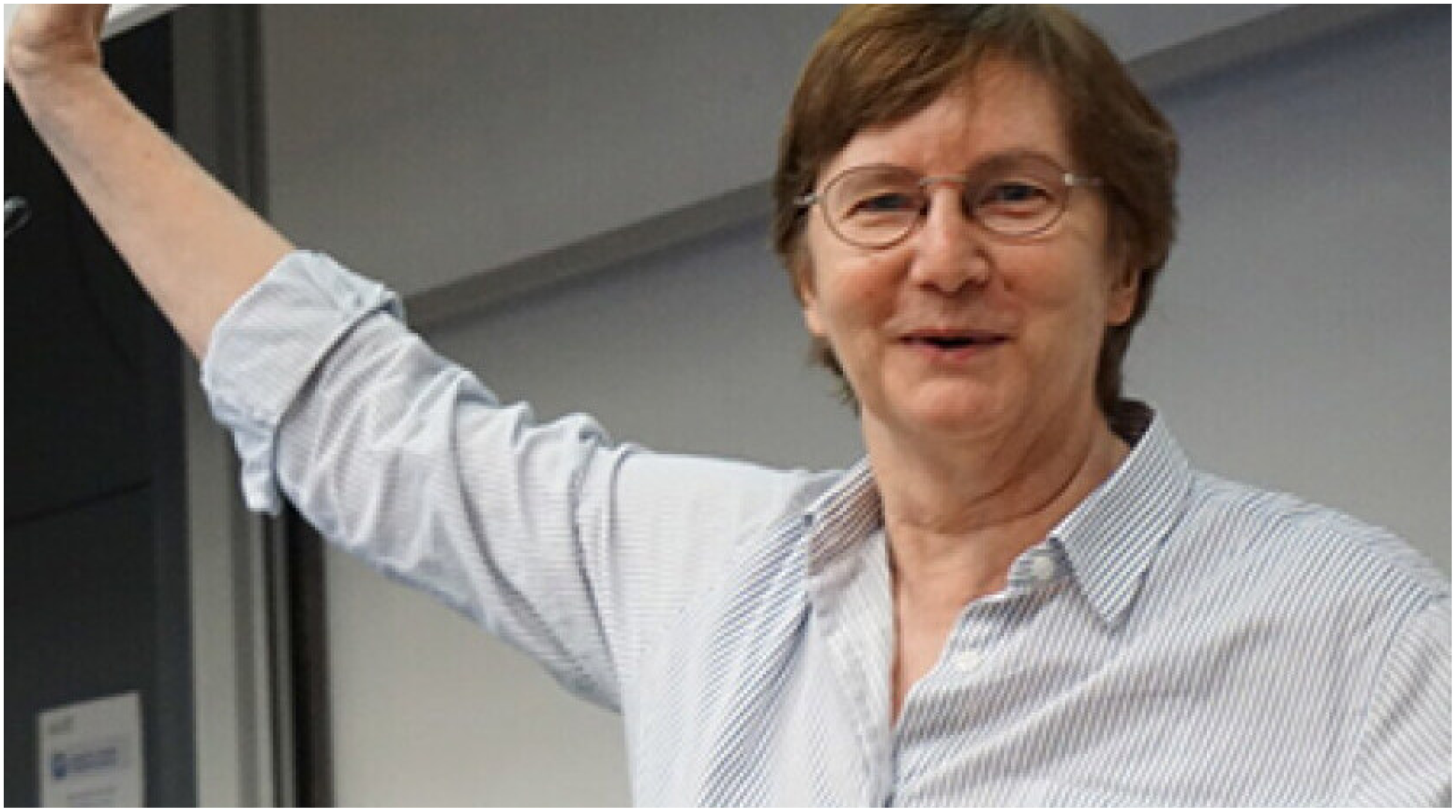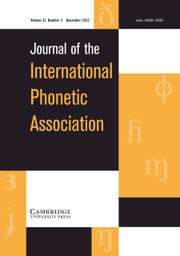
Anne Cutler, one of the past half-century’s foremost investigators of how sound and sound patterns shape the perception, processing and comprehension of spoken language, died in Nijmegen, The Netherlands, on 7 June 2022 after a brief illness. While she never described herself as a ‘phonetician’, she was a strong supporter and outstanding contributor to the broad church of phonetic science. She attended every ICPhS meeting from Copenhagen (1979) to Melbourne (2019); she served on the Council of the IPA from 1999 to 2011 and on the Permanent Council for the ICPhS from 2007 until her death. She mentored, supervised and collaborated with many prominent scholars around the world who are now leading figures in the study of speech. Her contributions have influenced researchers who consider themselves to be phoneticians, psychologists and psycholinguists, general linguists, laboratory phonologists, speech technologists and cognitive scientists; she knew – and listened to – all of them.
She was born in Melbourne in January 1945, and spent much of her childhood in Tasmania. She studied German and Psychology at the University of Melbourne, graduating with a BA Class 1 Honours in 1964, followed by a Diploma of Education in 1966. At the time her career intention was to become a high school German teacher, and she spent two years (1967–69) on an exchange studentship in Germany from the German Academic Exchange Service (DAAD). As part of the arrangement by which the Victorian Education Department had funded her university degree, she then returned to Australia to teach German for three years, not at a high school, but as a Teaching Fellow at Monash University. It was there that she met her lifelong companion Bill Sloman.
But that is only the beginning of the story. Before her stay in Germany, she had already discovered psycholinguistics – which as a field was still in its infancy – and as soon as she had fulfilled her teaching obligation, she left Australia to pursue a Ph.D. degree at the University of Texas, supervised by Don Foss. This was followed by postdoctoral positions in psychology at MIT (1975–76) and Sussex (1976–82); it was during her time at Sussex that she and Bill (whose career had meanwhile taken him to England as well) married. From Sussex she moved to a tenured research position at the Medical Research Council Applied Psychology Unit in Cambridge, where she stayed for 11 years. Her life and work then took a further turn in 1993, when she was appointed a director of the Max Planck Institute for Psycholinguistics in Nijmegen. She quickly acquired her third West Germanic language and for the next two decades helped make Nijmegen a destination for researchers from around the world. She was required to retire from the Institute in 2012 but, with the agreement of the Max Planck Society, the next phase of her career began early, in 2006, with a fractional part-time affiliation as Research Professor with the MARCS Auditory Laboratories at the Western Sydney University. This affiliation became a regular research position when she and Bill returned to Australia after so many years abroad; in the decade that remained to her, she left her mark on the research environment in her homeland. She was appointed Distinguished Professor in 2018 and took on the role of Research Chair at the MARCS Institute for Brain, Behaviour and Development. She was a key instigator and subsequent chief investigator on the Australian Research Council Centre of Excellence for the Dynamics of Language, heading up the processing group and more generally disseminating her brand of interdisciplinary research.
Selecting a few noteworthy publications for a representative bibliography is more or less impossible without resorting to an arbitrary criterion like listing the six titles with more than 1000 citations on Google Scholar. It seems important to note the variety of topics in which she made noteworthy contributions and the variety of collaborators with whom she made them: speech errors (e.g. Fay & Cutler Reference Fay and Cutler1977); language development in infants and children (e.g. Johnson, Juszcyk, Cutler & Norris Reference Johnson, Jusczyk, Cutler and Norris2003); the effects of phonetic detail and phonological structure on lexical access (e.g. Cutler, Mehler, Norris & Segui Reference Cutler, Mehler, Norris and Segui1986, Norris, McQueen & Cutler Reference Norris, McQueen and Cutler2003); and of course the role of prosody in speech processing (e.g. Cutler, Dahan & van Donselaar Reference Cutler, Dahan and van Donselaar1997). It also seems important to exemplify her broad interests (e.g. Beattie, Cutler & Pearson Reference Beattie, Cutler and Pearson1982, Cutler, McQueen & Robinson Reference Cutler, McQueen and Robinson1990) and her sense of academic mischief (e.g. Cutler Reference Cutler1994). Yet there is a unifying theme in her work, namely the role of the listener’s linguistic experience in the process of understanding spoken language. Her book Native Listening (Cutler Reference Cutler2012) summarises forty years of research in this broad field – her own and others’ – with the verve of a good thriller writer and the insight of somebody who was there. She describes clearly the field’s gradual realisation that theoretical conclusions based on speech processing experiments with speakers of English don’t necessarily hold up when confronted with the results of the same experiments with speakers of French or Japanese. While her enthusiasm for multidisciplinary perspectives never waned, much of her research can be seen as part of the quest to understand how a lifetime of experience with our first language affects the fine details of what happens when we process speech. This is the source of her insistence on the importance of comparative cross-linguistic work in psycholinguistics (summed up in the virtually untranslatable title of her inaugural lecture in Nijmegen, ‘Eentaalpsychologie is geen taalpsychologie’, one of the many bits of public wordplay in which she took such pleasure). The broad humanistic vision behind the grand theme was thoroughly grounded in dozens and dozens of careful experimental reports by herself and her students and colleagues, in which details were presented and conclusions justified.
She took her role as mentor, supervisor and colleague very seriously, and was always ready to support junior scholars and collaborated with an international array of researchers. In particular, she was a terrific supporter and mentor of women in science; it is fitting that in 1999 she became the first woman to be awarded the Spinoza prize of the Netherlands Organization for Science (NWO), the highest Dutch scientific honour. The Spinoza prize enabled her to establish a baby lab in Nijmegen (now the Baby and Child Research Center of the Max Planck Institute and Radboud University) and to undertake developmental research in auditory and speech perception in infants and children. Yet the prize was just one of many awards she received in her long career: she received a medal from the International Speech Communication Association (ISCA) in 2014 and was an honorary member of several professional societies (such as the Linguistic Society of America) and a Fellow or Corresponding Fellow of national academies in at least four countries.
One might imagine that someone with such a list of achievements seldom left her lab, but this was not the Anne either of us knew. We both met her for the first time at conferences, when we were insecure Ph.D. students, and both of us had similar experiences of being enthusiastically encouraged in what we were doing. The enthusiasm extended to life outside the lab: one of us recalls the delight she took in sharing an expensive bottle of prize-winning Sardinian red wine after a holiday in Sardinia; the other recalls a riotous late-night tram ride (Anne was a devoted tram enthusiast) through the darkened streets of Tallinn during ICPhS in 1987. And our experience is in no way exceptional – we suspect that even one-sentence summaries of such experiences from colleagues around the world would occupy pages and pages beyond our brief appreciation here. Her loss is deeply felt by many.



